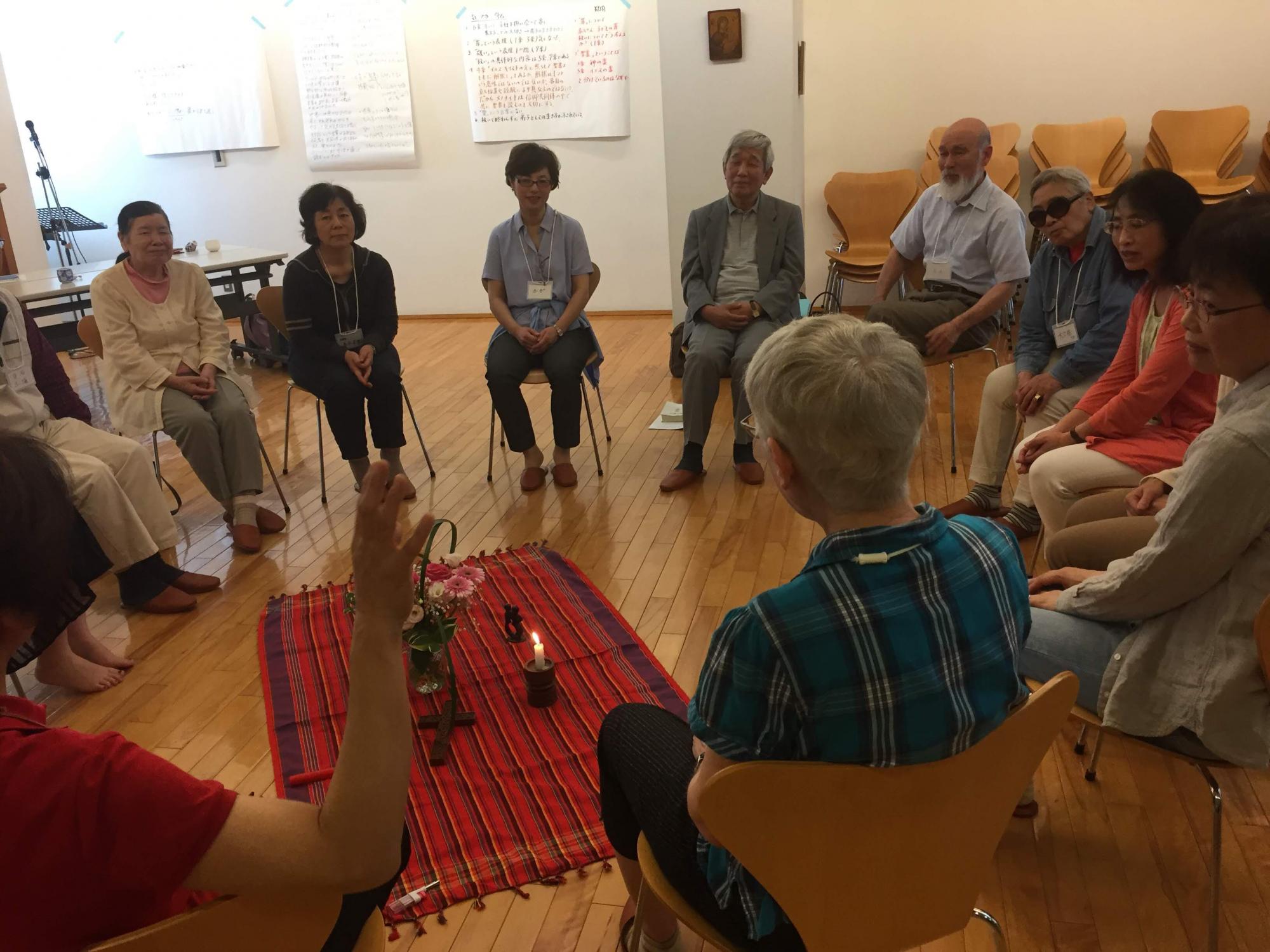A quiz on global Christianity and Anabaptism (including MWC statistics) prepared participants from Nihon Menonaito Kirisuto Kyokai Kyogikai (Japan Mennonite Christian Church Conference) for a discussion of the Shared Convictions of Global Anabaptists.
For the annual Peace Missions Centre seminar 15–16 July 2018 at Fukuzumi Mennonite Center in Sapporo, Japan, the group from Japan Mennonite Church used Mennonite World Conference’s Shared Convictions to reflect on faith and practice in the context of global Anabaptists.
Although this Mennonite national church on the island of Hokkaido has its own confession of faith, “we join our Mennonite brothers and sisters in confessing the ‘Shared Convictions’ statement,” the document states, “express[ing] the faith that unites Anabaptist/Mennonites who walk in the path of disciples in today’s world.”
“It was a profound encouragement to find out that the Shared Convictions were a powerful tool for reflection, exploration and learning in our Mennonite koinonia,” says Atsuhiro Katano, MWC General Council member for Japan.
Facilitator Katano designed the program using a workshop method called “world café.” Participants explored the Shared Convictions in casual manner by visiting seven tables with one article at the centre. They reflected on and raised questions about each statement, then wrote their impressions on a big sheet of paper on the table.

The workshop was comprised of seven 15-minute rounds, so that each participant could visit each table. After the world cafe, participants shared their reflections in small groups.
Most of the 23 participants agreed that the Shared Convictions express the distinctive characteristics of Anabaptist tradition dear to them, such as Christo-centric discipleship and emphasis on communal acts of church.
Some expressed bewilderment when they were exposed to the description of human fallenness/sinfulness and nonconformity to the powers of evil without explicit mention on God’s love.
Other questions were raised on the terms used for translation, lack of articulated dogmas and on readability to non-Christians. This demonstrated how diverse the participants were in terms of what they expect from a statement of faith.
The seminar closed with all participants sitting in a circle to share their experiences as they passed a Ryukyu Temari (a traditional handball from Okinawa) as the talking piece. Some participants shared that the style of the workshop showed them that it is possible to create a safe space that is both respectful to various opinions and focused on a particular theme.
—a Mennonite World Conference release by Atsuhiro Katano, a church leader in Nihon Menonaito Kirisuto Kyokai Kyogikai.